Every so often, an industry will decide that some of its stakeholders will need to pay more than their fair share for the greater good. The Seattle Times was very familiar with that concept, until it finally got rid of its Joint Operating Agreement with the Seattle P-I. The New York Yankees know that part of their revenues are going to help the Pittsburgh Pirates sign Andrew McCutcheon to a long term deal. But I find it hard to think of any example of a “redistribution of wealth” that disadvantages a certain subset of players more than the Harbor Maintenance Tax (HMT) hurts Washington’s ports.
And yet, like so many of these situations, there’s not necessarily an easy solution to the problem. Let’s explore in this latest installment of our blog series on WCIT’s policy priorities.
As always, let’s start with the background. The Harbor Maintenance Tax is a federal tax imposed on shippers based on the value of the goods being shipped through ports. The tax is placed in a trust fund to be used (supposedly) for maintenance dredging of federal navigational channels. Sounds straightforward, right? Except there are three major problems with it.
The first problem impacts most of the ports in the country, which is that Congress doesn’t actually have to use the money it raises from the tax for dredging. And you know what Congress tends to do when it doesn’t have to do something. The HMT has annual revenue of more than $1.4 billion, which coincidentally is in the range of the $1.3 to $1.6 billion that the Army Corps of Engineers says is necessary to spent on dredging; however, over the past five years, annual expenditures for channel maintenance have averaged less than $800 million, creating a $5 billion surplus while channels go inadequately maintained. Congress uses this surplus to build to mask the federal deficit or fund other programs not related to ports.
If that’s not bad enough for Washington – which requires some of those funds, particularly for its inland waterways like the Columbia and Snake Rivers – our state also gets less money from the HMT then it puts in…mostly because we don’t need as much dredging. Our major ports are naturally deep, which objectively is great, but which means that a larger percentage of our state’s HMT revenues go to dredge East Coast and Gulf Coast ports…the same ports that are going to start seeing more of our container business when the Panama Canal widening is completed and shippers decide to go via an all-water route instead of stopping at our ports and making the rest of the journey via truck and rail (remember that more than 76% of the goods that come through Puget Sound ports head east to areas like Chicago.) So, we’re literally paying to help make sure those other ports are quality destinations for cargo currently coming here. Boo!
But it’s actually the final piece of the HMT pie that’s the bitterest pill to swallow (pie=pill in this mixed metaphor). There’s a little something called the “land border loophole.” That is, the HMT is assessed on ocean-going international imports that land at U.S. ports…but it’s not assessed on importers who route cargo through non-U.S. ports (such as Canada and Mexico) that then move their cargo into U.S. markets by land. Which means that it’s cheaper for international importers to divert cargo to non-U.S. ports to avoid the HMT. Which means that Washington ports, which are seeing increased competition from British Columbia, are particularly disadvantaged.
Of course, there are solutions to all three of these issues, but they run up against one of two problems: 1) either the folks that are benefiting from the current situation are resistant to change, or 2) the solution presents it own set of legal challenges. The land border loophole, for example, could be solved if we just had a commensurate tax for imports that come via foreign ports, except we’d have to be sure we weren’t then creating any sort of NAFTA or WTO violation.
In summary: Washington ports are paying a tax that 1) doesn’t go entirely for what it was intended to, 2) disproportionately benefits other US ports that are hoping to attract our cargo through the Panama Canal and 3) incentivizes cargo to Canada that would otherwise come here. Easy to see why that might be a WCIT policy priority, yes? And, while I mentioned how hard it would be to address it, I do think that there’s a way forward that a group of stakeholders can develop this year which might do the trick.You’ll be able to read all about it here at the State of Trade blog as it develops.
In the meantime, we’ll move on to the next WCIT policy priority in our continuing series. Next week: Russian WTO Accession, or “From Russia With Love (of Tariffs)“.

